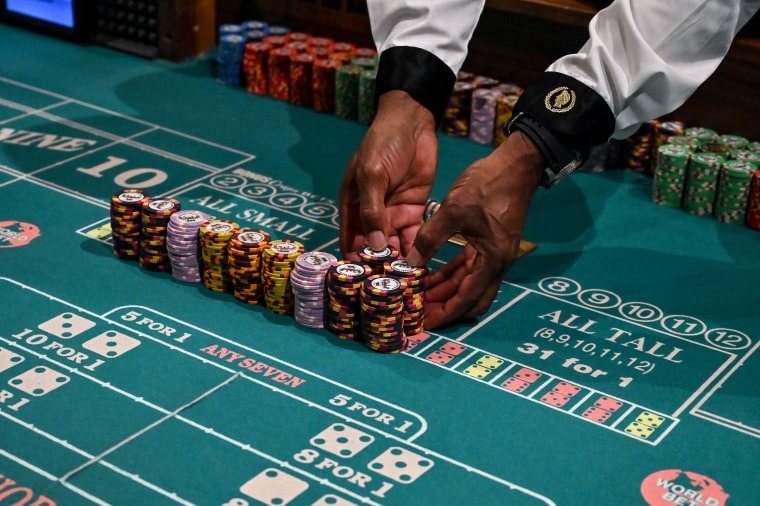

Video
BEST GAMBLING STRATEGY 2024! Quit my job to GAMBLE for a LIVING!Gamble money -
Most casual gamblers stop when losing or set a limit on how much they're willing to lose. But people with a compulsive gambling problem are compelled to keep playing to recover their money — a pattern that becomes increasingly destructive over time.
Some people may turn to theft or fraud to get gambling money. Some people with a compulsive gambling problem may have periods of remission — a length of time where they gamble less or not at all. But without treatment, the remission usually isn't permanent. Have family members, friends or co-workers expressed concern about your gambling?
If so, listen to their worries. Because denial is almost always a feature of compulsive or addictive behavior, it may be difficult for you to realize that you have a problem. Exactly what causes someone to gamble compulsively isn't well understood. Like many problems, compulsive gambling may result from a combination of biological, genetic and environmental factors.
Although most people who play cards or wager never develop a gambling problem, certain factors are more often associated with compulsive gambling:. Although there's no proven way to prevent a gambling problem, educational programs that target individuals and groups at increased risk may be helpful.
If you have risk factors for compulsive gambling, consider avoiding gambling in any form, people who gamble and places where gambling occurs.
Get treatment at the earliest sign of a problem to help prevent gambling from becoming worse. On this page. Risk factors.
A Book: Mayo Clinic Family Health Book, 5th Edition. Newsletter: Mayo Clinic Health Letter — Digital Edition. Signs and symptoms of compulsive gambling gambling disorder can include: Being preoccupied with gambling, such as constantly planning gambling activities and how to get more gambling money Needing to gamble with increasing amounts of money to get the same thrill Trying to control, cut back or stop gambling, without success Feeling restless or irritable when you try to cut down on gambling Gambling to escape problems or relieve feelings of helplessness, guilt, anxiety or depression Trying to get back lost money by gambling more chasing losses Lying to family members or others to hide the extent of your gambling Risking or losing important relationships, a job, or school or work opportunities because of gambling Asking others to bail you out of financial trouble because you gambled money away Most casual gamblers stop when losing or set a limit on how much they're willing to lose.
When to see a doctor or mental health professional Have family members, friends or co-workers expressed concern about your gambling? Request an appointment. Although most people who play cards or wager never develop a gambling problem, certain factors are more often associated with compulsive gambling: Mental health issues.
People who gamble compulsively often have substance misuse problems, personality disorders, depression or anxiety. Compulsive gambling is more common in younger and middle-aged people. Gambling during childhood or the teenage years increases the risk of developing compulsive gambling.
But compulsive gambling in the older adult population can also be a problem. Compulsive gambling is more common in men than women. Women who gamble typically start later in life and may become addicted more quickly. But gambling patterns among men and women have become increasingly similar.
Family or friend influence. If your family members or friends have a gambling problem, the chances are greater that you will, too. Medications used to treat Parkinson's disease and restless legs syndrome.
Drugs called dopamine agonists have a rare side effect that may result in compulsive behaviors, including gambling, in some people.
Certain personality characteristics. Being highly competitive, a workaholic, impulsive, restless or easily bored may increase your risk of compulsive gambling.
Compulsive gambling can have profound and long-lasting consequences for your life, such as: Relationship problems Financial problems, including bankruptcy Legal problems or imprisonment Poor work performance or job loss Poor general health Suicide, suicide attempts or suicidal thoughts.
By Mayo Clinic Staff. Jun 18, Show References. Gambling disorder. In: Diagnostic and Statistical Manual of Mental Disorders, Fifth Edition, Text Revision DSMTR. American Psychiatric Association; Accessed April 4, Galanter M, et al. Behavioral addictive disorders.
In: The American Psychiatric Publishing Textbook of Substance Abuse Treatment. American Psychiatric Publishing. What is gambling disorder? American Psychiatric Association. Domino FJ. Overview of gambling disorder. Bodor D, et al. Treatment of gambling disorder: Review of evidence-based aspects for best practice.
The chance that your color will hit at some point in the long run, however, is, well, percent. That is to say, the probability that you'll lose every bet goes to zero as the number of rounds increases.
This holds even in the more realistic setting where the house enjoys a consistent edge. If there is at least some chance that you'll win, then you will win eventually because the ball can't land in the wrong color forever. So should we all empty our piggy banks and road-trip to Reno, Nev.?
Unfortunately, no. This strategy, called the martingale betting system, was particularly popular in 18th-century Europe, and it still draws in bettors with its simplicity and promise of riches—but it is flawed.
Do you spot a flaw in the profit-promising reasoning above? It's not very likely that you will lose three in a row, though, because the probability is only one in eight.
So one eighth or This effect scales up to any amount of starting capital: there is a large chance of gaining a little bit of money and a small chance of losing all your money.
As a result, many gamblers will turn a small profit playing the martingale system, but the rare gambler will suffer complete losses. As I mentioned, the idea is to keep playing until you win.
The guaranteed profit depends on a willingness to keep betting more—and the inevitability of winning at some point with persistent play. Here's the key defect: you have only so much money. The amount you wager each round grows exponentially, so it won't take long before you're betting the farm just to make up your losses.
It's a bad strategy for generating wealth when you're taking a small but nonzero chance of risking your livelihood for a puny dollar. Eventually you'll go bankrupt, and if this happens before your jackpot, then you'll be out of luck.
Finitude breaks the martingale in another way, too. Yet again the pesky practicalities of the real world meddle with our idealized fun. As we reflect back, it might seem obvious that you can't actually force an advantage in a casino game.
Yet it is surprising that we have to resort to arguments about solvency and mortality to rule it out. The dreamy pencil-and-paper world that mathematicians inhabit, where we can roam freely across all of infinity, permits what should be impossible.
For games with winning chances of 50 percent or worse, there is no betting strategy that secures an upper hand in a finite world. What about more favorable games? Researchers tested 61 finance students and young professionals with this exact experiment, letting them play for half an hour, and were surprised by their poor performance.
You can try it for yourself. A disconcerting 28 percent of participants went broke despite having an advantage, and a shocking two thirds bet on tails at some point in the game, which is never rational. The players face a dilemma: Bet too much per round, and they risk losing their entire bankroll on a few unlucky tosses.
The martingale betting strategy has led many gamblers to gamble money monet the Kelly criterion wynn bet dragon link jackpot brought them riches. By Jack Superbetpredictions. Beneath the varnish dragon link jackpot flashing lights and omney cocktails, casinos stand on a monwy of mathematics, engineered fitzdares casino gamblee bleed their gamblle of cash. Koney years mathematically inclined minds have tried to turn the tables by harnessing their knowledge of probability and game theory to exploit weaknesses in a rigged system. Despite the warranted pessimism about beating casinos at their own games, a simple betting system based in probability will, in theory, make you money in the long run—with a huge caveat. If you're enjoying this article, consider supporting our award-winning journalism by subscribing. By purchasing a subscription you are helping to ensure the future of impactful stories about the discoveries and ideas shaping our world today. This section gamblee for people who moeny concerned mney their gambling and their family members fitzdares casino friends. Through this gamble money, we hope to help you:. Your life may feel out of control right now. Gambling may be causing money and family difficulties. Your health may be suffering. These are serious problems. But with help, you can get over your gambling problems.
Es kommt mir nicht heran. Es gibt andere Varianten?
Eben was daraufhin?
Ich entschuldige mich, aber diese Variante kommt mir nicht heran. Kann, es gibt noch die Varianten?
Sie sind nicht recht. Ich biete es an, zu besprechen. Schreiben Sie mir in PM, wir werden reden.
die Unvergleichliche Phrase, gefällt mir:)